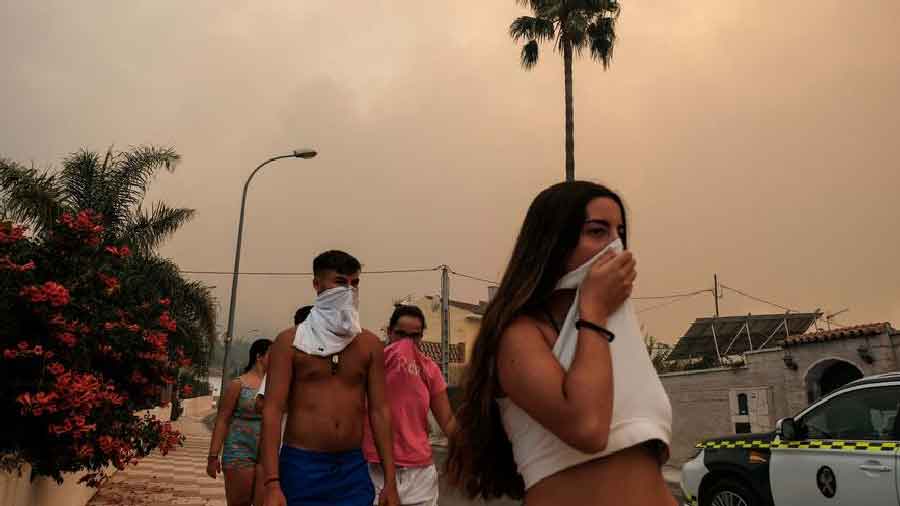Crews in the south of France were battling wildfires on Saturday that had consumed more than 22,000 acres and prompted the evacuation of 12,000 people, the local authorities said.
The wildfires are among dozens across Europe, driven by a heat wave that has gripped parts of the continent and threatens to bring record-breaking temperatures to Britain early next week.
The most serious fires in France were in the Gironde area, near the city of Bordeaux, where more than 1,200 firefighters had been deployed.
Météo France, the national weather forecaster, predicted temperatures of at least 40 degrees Celsius (104 degrees Fahrenheit) on the country’s Atlantic coast from Sunday to Tuesday.
“We are going through an exceptionally harsh season,” President Emmanuel Macron said on Friday in Paris. “We already have three times more burned forests than in 2020.”
Firefighters have also been battling dozens of blazes in Greece, Portugal and Spain, which has faced unusually high temperatures.
“Obviously, the longer the heat wave, the greater the repercussions as far as the issue of forest fires, and also on people’s health,” said Rubén del Campo, a spokesman for Spain’s metereological agency.
A sanitation worker in Madrid died on Saturday after suffering from heat stroke the day before, a city employee said.
Portugal’s health ministry said this week that there had been 238 excess deaths in the country from July 7 to 13, during a period of high temperatures. It was unclear how many of those deaths were attributable to the heat.
Portugal Prime Minister António Costa said on Friday that the pilot of a firefighting plane was killed when the aircraft crashed in the country’s northeast.
And in Greece, firefighters fought more than 50 blazes, the largest on the island of Crete and in the Saronikos region, southeast of Athens.
The heat wave was expected to hit Britain early next week, when temperatures were forecast to reach 40 degrees Celsius for the first time.
In a country unaccustomed to such heat, workers were spreading grit on the roads, fearing they would melt without protection. Schools said they would move classes remotely. And Transport for London, the city’s transit agency, urged people not to travel on Monday and Tuesday because rail tracks could bend or buckle in the heat.
The British government’s top emergency committee, Cobra, was also planning an emergency meeting on Saturday to discuss the response to the extreme weather.
The highest temperature officially recorded in Britain was 38.7 degrees Celsius in July 2019, according to the national weather service, the Met Office.
Heat waves in Europe have increased in frequency and intensity over the past four decades, and a study published this month found that the changes were happening faster in the region than in other parts of the world, including hot spots like the Western United States.
A heat wave in Europe in 2003 killed 15,000 people in France, many of them older residents who lived in homes without air-conditioning. No deaths have been reported in France during the most recent heat wave.
Climate scientists have said that global warming is making extreme temperatures more common, but they are investigating whether specific weather events are intensifying or becoming more likely because of human-induced warming of the climate.
“Climate change has already influenced the likelihood of temperature extremes in the UK,” Nikos Christidis, a climate attribution scientist at the Met Office, said in a news release, adding that the likelihood of experiencing such record-breaking heat in Britain had already increased and would continue.
The New York Times











